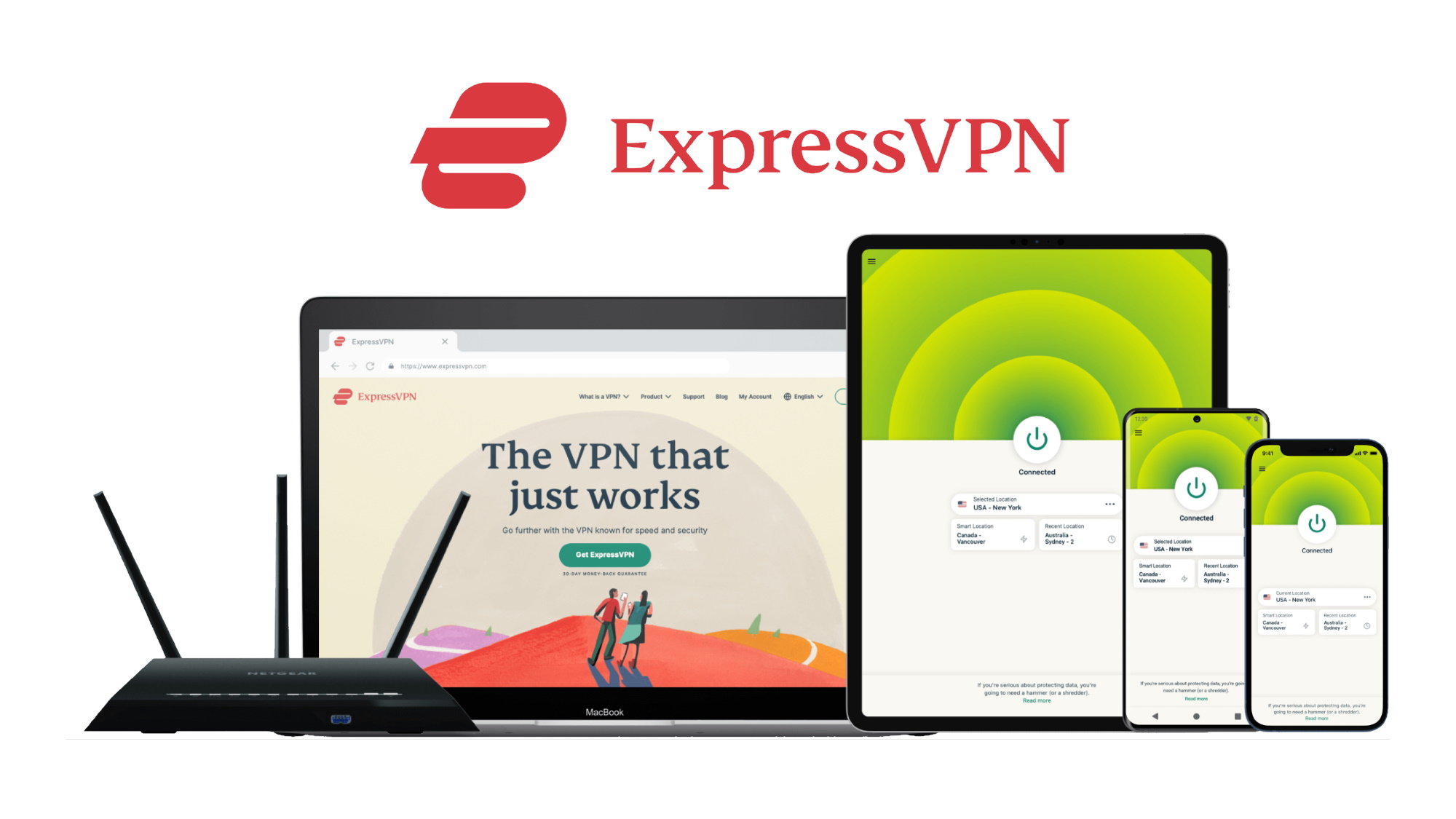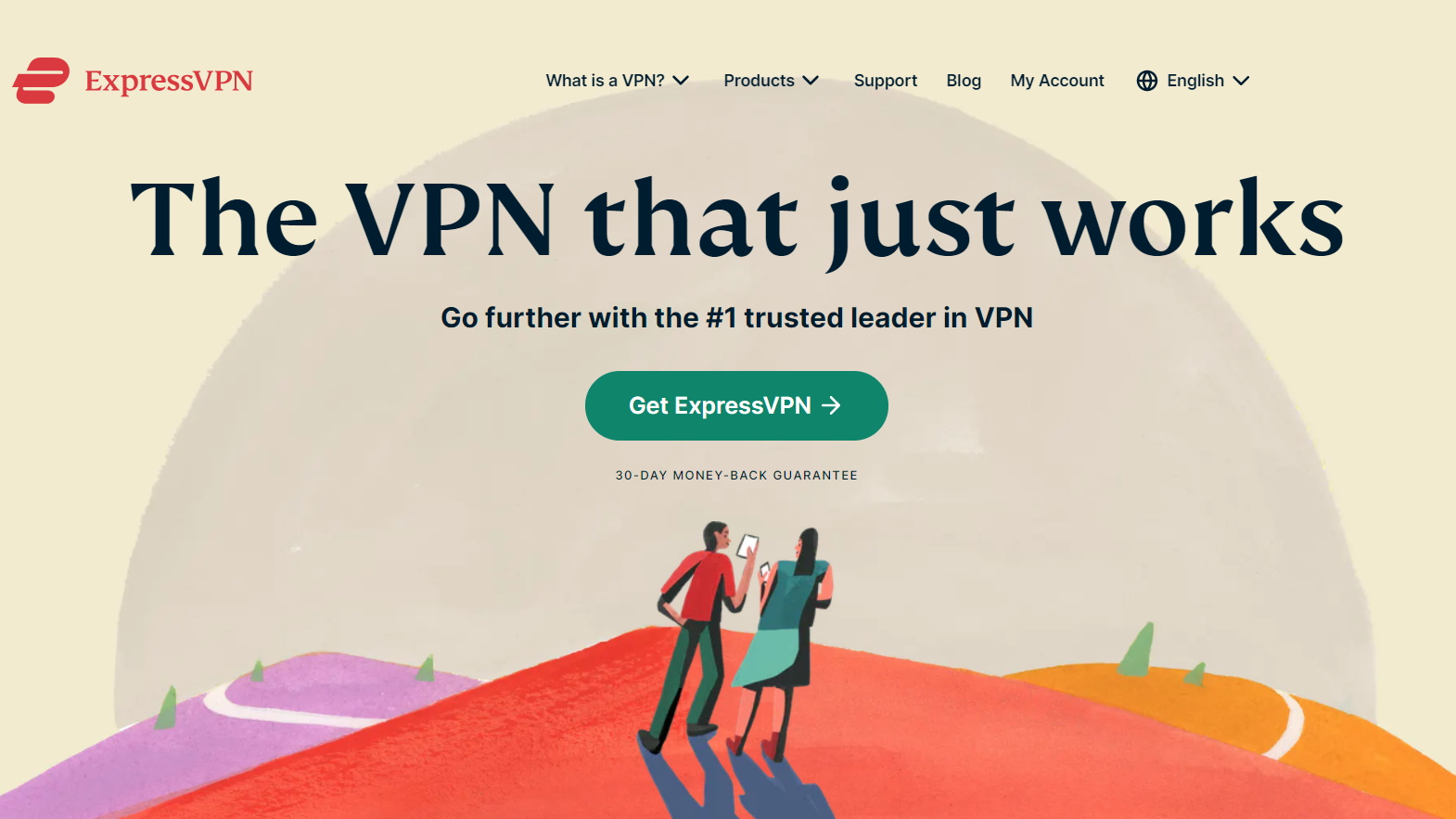ExpressVPN price, deals, and discounts: the best offers available
Get the best price on the world's greatest VPN (and save some serious cash)

Sign up for breaking news, reviews, opinion, top tech deals, and more.
You are now subscribed
Your newsletter sign-up was successful
Test after test, ExpressVPN has consistently ranked among our top three VPNs overall, thanks to its top-notch security and ease of use. However, one of our long-standing gripes has been its higher price tag, which made it difficult to recommend over competitors like NordVPN and Surfshark for all users.
That has now changed. ExpressVPN recently revamped its pricing structure, introducing three distinct tiers and lowering its entry-level prices. This restructuring makes it far more appealing, even to bargain hunters, which wasn’t really the case before.
Keep reading, and I'll walk you through the best deals available right now, and explain how opting for a long-term plan can save you some extra cash.
There's been a disturbance in the world of ExpressVPN, as it has finally reduced its prices! Coming in the form of a new 2-year plan, ExpressVPN, while still more expensive than the likes of NordVPN and Surfshark, is now a much more comparable cost, and may even be a dealmaker for those keen to secure themselves as much as possible. Even better, the provider has further reduced its pricing for Cyber Monday – but it's a time-limited deal.
ExpressVPN is an exceptionally quick service (thanks to its very own Lightway protocol), comfortably keeping up with data-intensive tasks like HD streaming, online gaming, and torrenting without breaking a sweat.
Speaking of streaming, my most recent testing showed ExpressVPN was able to access all of today's most popular services such as Netflix, BBC iPlayer, Amazon Prime, and more without encountering any blocks.
Below there's everything you need to know about ExpressVPN's pricing plans and how TechRadar readers, like your good self, can save a little extra.
How much does ExpressVPN cost?
ExpressVPN has made one of the most significant shake-ups in its 16-year history, ditching its one-size-fits-all plan and introducing three new subscription tiers: Basic, Advanced, and Pro. Each caters to different needs, and depending on your requirement, you can choose between three plan lengths: 2 years, 1 year, or 1 month.
It’s worth mentioning that you’ll bag the biggest savings with the 2-year plan, as it comes with four months of extra protection for free. Of course, this requires an upfront payment, but the added months make it worthwhile.
With the introduction of these three new plans, it becomes all the more important to take a thorough look at what each one offers. They differ not just in the number of devices they cover but also in the extra features they include.
So, before simply subscribing, it’s worth considering which features you’ll actually use – because the plan that looks attractive on paper may not necessarily be the right fit for you.

ExpressVPN’s Basic plan
ExpressVPN Basic gives you access to all core VPN features and supports 10 simultaneous connections. It also includes the company’s built-in DNS-based tool for blocking ads, trackers, and malicious sites.
- 1 month: $12.99 per month
- 1 year: $4.99 (billed $74.85 for the first 15 months)
- 2 years: $3.49 (billed $97.72 for the first 28 months)
ExpressVPN’s Advanced plan
ExpressVPN Advanced bumps up the number of simultaneous connections from Basic’s 10 to 12. It also includes a built-in password manager (ExpressVPN Keys), advanced protection with blockers for trackers and adult sites, ID monitoring with fraud alerts, identity restoration, and even 3 days of unlimited international mobile data via its eSIM service.
- 1 month: $13.99 per month
- 1 year: $5.99 (billed $89.85 for the first 15 months)
- 2 years: $4.49 (billed $125.72 for the first 28 months)
ExpressVPN’s Pro plan
ExpressVPN Pro offers the company’s new upper limit of 14 simultaneous connections, along with 5 days of unlimited eSIM data, monthly credit reports, a dedicated IP, and data removal services.
- 1 month: $19.99 per month
- 1 year: $8.99 (billed $134.85 for the first 15 months)
- 2 years: $7.49 (billed $209.72 for the first 28 months)
What is today's best deal?
ExpressVPN
The best VPN for beginners
ExpressVPN’s new Basic plan costs just $3.49/month on a 2-year subscription ($97.72 paid upfront for 28 months) – a huge 73% discount. It may not have all the bells and whistles of Advanced or Pro, but it delivers the essentials: Lightway protocol, post-quantum protection, and support for 10 devices at once. Beginners will find it especially friendly with its one-click connect, intuitive apps, built-in ad and malicious site blocker, and 24/7 support. It also excels at streaming, unblocking virtually every platform we threw at it. Best of all, you can try it risk-free with ExpressVPN’s 30-day money-back guarantee.
Now that ExpressVPN has rolled out its new pricing tiers, it’s worth keeping an eye on special promotions, since the company will likely push its revamp aggressively. If you want to explore the latest plans, you can head directly to the ExpressVPN website to check all the available tiers and pricing. It’s also worth keeping an eye on ExpressVPN promo codes, both current and upcoming, as they can help you save even more on your subscription.
How good is ExpressVPN?
As we explained in our detailed ExpressVPN review, this is one of the most well-rounded VPN services on the market. It offers a rock-solid mix of security and class-leading ease of use, wrapped in intuitive apps and powerful features. Now, with its new tiered plans, it has even added a welcome layer of affordability, making it easier to choose the exact balance of features you need.
ExpressVPN has undergone more independent audits of its no-logs policy than any other VPN, consistently proving that it doesn’t log any user data, let alone share it with authorities. The VPN's RAM-only TrustedServer technology ensures that all data is wiped with every server reboot, keeping sensitive information secure at all times.
On top of that, you get industry-standard AES-256 encryption, post-quantum encryption support, and Lightway – its own proprietary VPN protocol built from the ground up for both speed and security.
Speaking of speed, ExpressVPN is among the fastest VPNs available today. In our latest tests, it peaked at 898 Mbps using the Lightway protocol. Combined with strong unblocking and a large server network, ExpressVPN is a top choice for anyone looking to unblock content from back home when vacationing or away for work.
How does ExpressVPN prices compare to the competition?
While ExpressVPN’s pricing restructure hasn’t suddenly made it the best cheap VPN on the market, it has definitely made it more competitive. Bargain hunters now have the option to grab arguably the most secure VPN in the industry at a never-before-seen lower rate.
When comparing head-to-head, ExpressVPN’s Basic 2-year plan costs $3.49 per month and comes with four free months. By contrast, NordVPN’s 2-year plan comes in slightly cheaper at $3.09 per month with three free months. On paper, that’s a marginal difference.
Both services deliver the essentials: strong encryption, no-logs policies, and built-in ad/malicious domain blockers. Both also support 10 simultaneous connections. In practice, though, ExpressVPN is the more beginner-friendly choice, thanks to its intuitive apps and ease of use.
Things get more interesting with Surfshark. Its Starter plan costs just $1.99 per month ($53.73 for the first 27 months) and includes unlimited devices, offering far more flexibility than ExpressVPN’s 10-device cap.
Surfshark also matches ExpressVPN with an ad and pop-up blocker of its own, but goes further with perks like a rotating IP feature for stronger anonymity and an Alternative ID tool that lets you generate realistic email aliases with accompanying personal details (name, address, etc.). In terms of sheer value for money, Surfshark is hard to beat, though ExpressVPN still has the edge in simplicity.
Whatever your VPN choice, you can always find the latest discounts and offers on our regularly updated VPN deals guide.
We test and review VPN services in the context of legal recreational uses. For example: 1. Accessing a service from another country (subject to the terms and conditions of that service). 2. Protecting your online security and strengthening your online privacy when abroad. We do not support or condone the illegal or malicious use of VPN services. Consuming pirated content that is paid-for is neither endorsed nor approved by Future Publishing.
Sign up for breaking news, reviews, opinion, top tech deals, and more.
Krishi covers buying guides and how-to's related to software, online tools, and tech products here at TechRadar. Over at Tom's Guide, he writes exclusively on VPN services. You can also find his work on Techopedia and The Tech Report. As a tech fanatic, Krishi also loves writing about the latest happenings in the world of cybersecurity, AI, and software.
You must confirm your public display name before commenting
Please logout and then login again, you will then be prompted to enter your display name.
